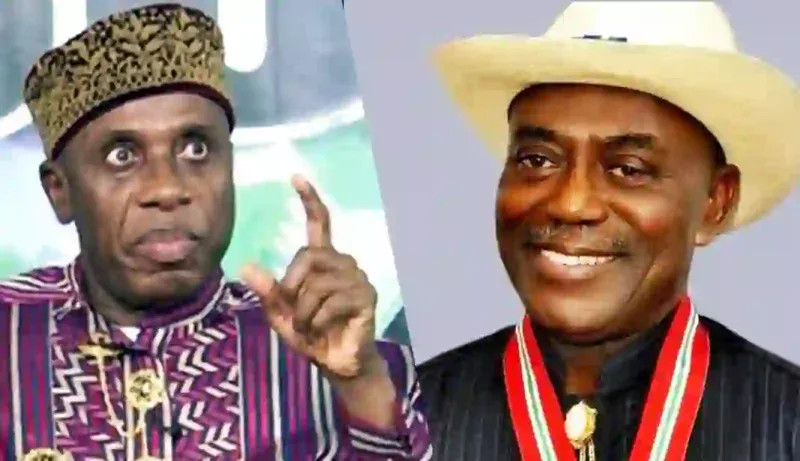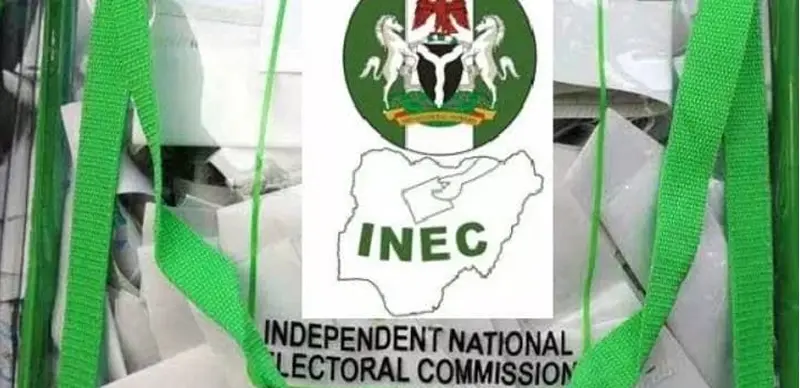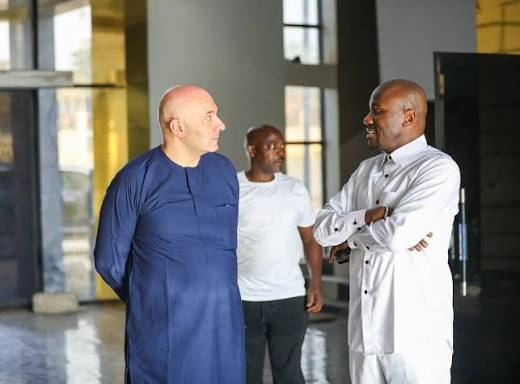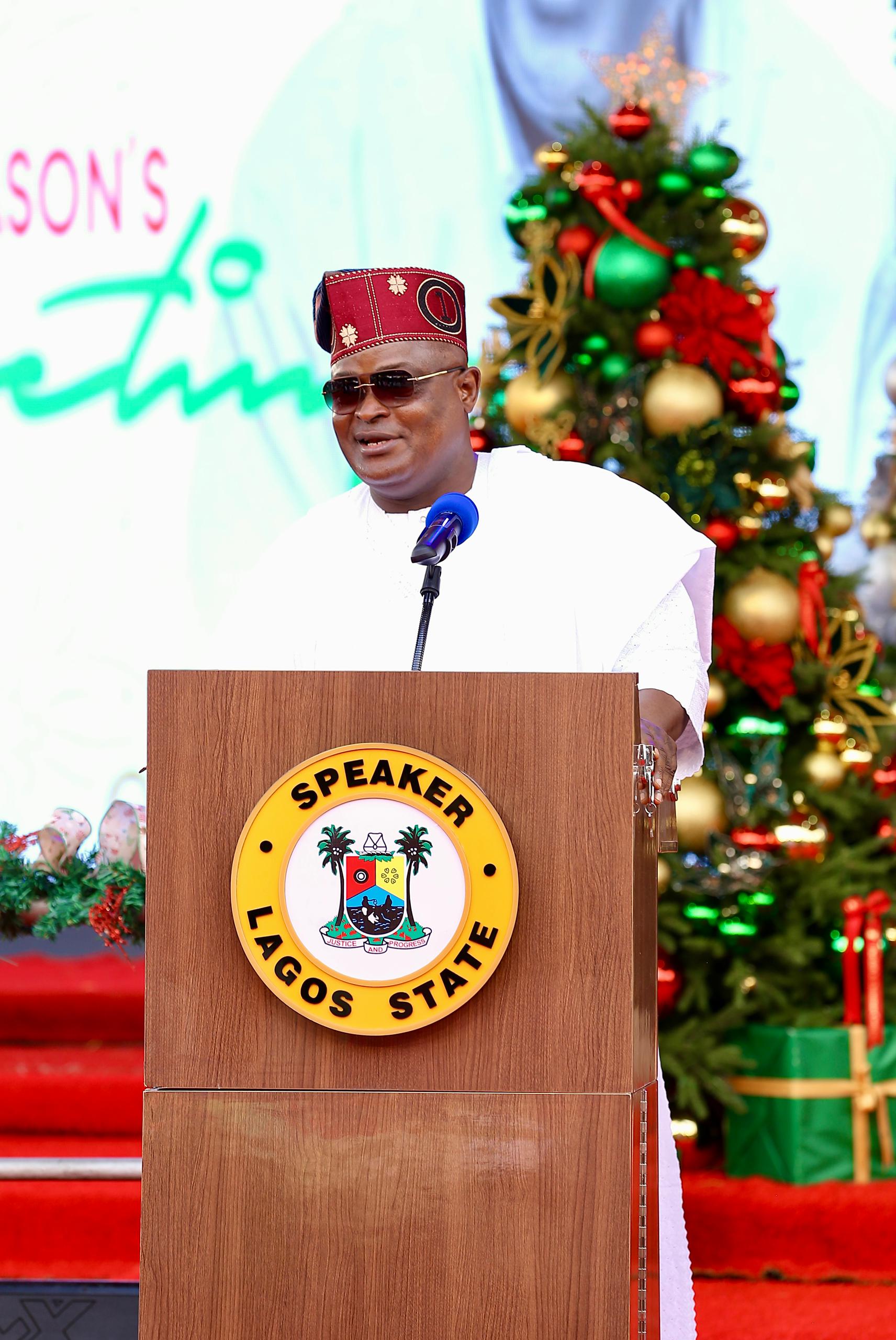Former Rivers State Governor Peter Odili, in his autobiography, details how his former aide Rotimi Amaechi allegedly “betrayed” him during the power struggle leading to Amaechi’s governorship, and unleashed a “vengeance mission” upon assuming office
In his recently published autobiography, “Conscience and History,” former Rivers State Governor, Dr. Peter Odili, has provided a detailed account of what he describes as a “betrayal” by his former personal aide, Rotimi Amaechi, who later became the state governor and currently serves as Minister of Transportation.
Also read: ‘Ruling!’ Court orders N2m compensation from Immigration for Peter Odili over passport seizure
Odili alleges that Amaechi, once his protégé, turned against him in the aftermath of the power struggle for the governorship.
According to Odili’s narrative, Amaechi began his career working in Odili’s Pamo Clinic in Port Harcourt before being assisted by Odili to secure a seat in the Rivers State House of Assembly, where he served as Speaker for eight years.
It was from this position that Odili reportedly chose Amaechi as his preferred aspirant for the governorship in 2007.
However, the emergence of the “K-Leg” controversy ultimately led to Amaechi’s replacement by Celestine Omehia as the Peoples Democratic Party (PDP) candidate for the 2007 gubernatorial election.
Odili asserts in his book that Amaechi betrayed his trust when he chose to pursue a legal challenge regarding his PDP nomination, despite Odili’s counsel against such action.
“I ensured that we worked hard for PDP to win the governorship election in Rivers State. If my support had gone elsewhere, PDP would not have won in Rivers State, and if PDP did not win in Rivers, Supreme Court could not have ordered Amaechi to be sworn-in as governor,” Odili stated, emphasizing the critical role he played in Amaechi’s eventual ascension.
He added, “These are all immutable facts that nothing else could therefore have changed, and nothing else could be justifiable reason for the hostility unleashed against me on the advent of Amaechi’s administration.”
Odili recalled that by 2001, just two years into his first term as governor, “subterranean scheming” for his succession had already begun among the young political team he had cultivated.
He referenced a warning from an elder statesman, Chief A.K. Dikibo, who noted that Odili had made governance “look so easy and sweet that some of these your young men think it’s a ‘piece of cake ‘and are already positioning to succeed you.”
As the 2007 elections approached, the internal jostling intensified. Maintaining a “taciturn disposition” about his preference, Odili eventually conducted an intelligence search that narrowed his potential successors down to Rotimi Amaechi, Austin Opara, and Abiye Sekibo.
Despite party pressure, he initially resisted naming a single preferred candidate.
Odili’s intelligence, however, uncovered a deep-seated plot by some caucus members, in connivance with family members and “Abuja big wigs,” to manipulate the primaries. Feeling “betrayed” and “set up for ridicule,” Odili intervened to ensure a transparent process, which led to Amaechi’s emergence as the PDP flag bearer.
This development, according to Odili, did not sit well in Abuja. Suddenly, the Economic and Financial Crimes Commission (EFCC) pursued Amaechi with various allegations, leading to his arrest and seizure of travel documents in December 2006.
Odili noted that Amaechi, like his commissioners, was released when Odili withdrew from the presidential primaries on December 15, 2006, though Amaechi’s travel papers remained withheld.
Odili stated that he supported Amaechi’s decision to legally challenge his disqualification and indictment.
Despite Odili’s continued efforts to secure Amaechi’s ticket, national leadership and the Presidency were “clearly bent on not allowing the Amaechi ticket to stand.”
Odili recounted being asked repeatedly to nominate someone else, which he refused. The situation escalated to a “very strange meeting at the Villa one night,” where President Olusegun Obasanjo allegedly told him he would not be blackmailed, and that Amaechi’s candidacy had a “K-Leg” (a disqualifying issue), instructing Odili to effect a change.
Odili recalled the shock of the President telling him that Nuhu Ribadu, then EFCC Chairman, had threatened to resign and apologize to Nigerians if Amaechi was allowed to be the candidate.
Convinced that Abuja would not morally support them, Odili returned to Port Harcourt and began exploring “self-protection” legal options.
The climax of the pre-election saga came during the zonal rallies for the presidential campaign in Port Harcourt.
While other states’ flagbearers were recognized, Rivers was declared to have “K-Leg,” and Odili was instructed to name a replacement for Amaechi or have one named for him.
Realizing he had lost the battle to save Amaechi’s candidacy, Odili immediately informed Amaechi of the “sad news.”
They “toyed with the idea of optional replacement,” eventually settling “reluctantly” on Celestine Omehia, Amaechi’s cousin, due to family and peer-group rivalry.
Odili proceeded with wide consultations, and the State enlarged Caucus approved Omehia’s candidature, a decision Amaechi was “part of at least outwardly.”
Amaechi was even part of the delegation that flew to Abuja to convey the decision to the party and the Presidency, receiving commendation for his purported compliance, though he “quietly avoided being part of the delegation to the party Chairman and the President.”
From that moment on, Amaechi broke contact.
Upon returning, Amaechi requested time off to travel to Ghana to recover.
It was during his absence that Odili learned Amaechi’s lawyer, in pursuing the EFCC case, had introduced the matter of his disqualification by PDP and replacement with Omehia.
Odili stated he confronted Amaechi’s lawyer, Dappa Ado Esq., who clarified he was acting on his client’s instructions. Odili respected his position but advised him to convey his view that the appropriate focus was on nullifying Amaechi’s supposed indictment, not Omehia’s candidacy.
Amaechi’s lawyer never responded, and the case continued.
“From that moment on, Amaechi broke contact,” Odili stated. Efforts to reach him through others, including then Commissioner for Information Sen. Magnus Abe and Chief G. U. Ake, were unsuccessful. Odili noted, “Trust had been threatened. The subsequent events confirmed the breach. The stage for the parting of ways was set.”
After Amaechi’s victory at the polls and the formation of government, Omehia reportedly carried on with the exclusion of Amaechi’s supporters, against Odili’s advice, while Amaechi’s supporters continued to back his court case. This led to a “clear and palpable hostility” and “mutual distrust” within the party.
On October 25, 2007, the Supreme Court ordered Amaechi’s immediate swearing-in as governor. Odili asserts that Amaechi “assumed office as governor with the venom of a bitter man on a vengeance mission against all perceived, real and imagined opponents, including me – classic ‘misplaced aggression’.”
Odili reiterated, “My support gave Amaechi the ticket. I did all in my power to sustain his candidature in the face of grave opposition from Abuja. He was party to the choice of Omehia as his replacement. My party loyalty and support ensured PDP victory at the election.”
He concluded that these “immutable facts” could not justify the “hostility unleashed against Dr. Peter Odili on the advent of governor Amaechi’s administration.”
The climax of this alleged “vengeance mission” was the setting up of the so-called Kayode Eso “Truth and Reconciliation Commission,” which Odili claims was “clearly conceived, designed and programmed to permanently indict and incarcerate Dr Odili.”
He recounted being put on public trial with live coverage funded by the Rivers State Government. Despite “obvious bias, prejudice, malice and predetermined objective,” Odili maintained his innocence and challenged the commission’s report in court.
After four court transfers due to the state government’s hostility, Odili ultimately obtained victory in Justice Ahiakwo’s court, which threw out and nullified the report.
Odili reflected on the revealing nature of his period out of office, stating, “The axiom that ‘you never really know a man until he has power and money’ came truly alive since my period out of office 29th May 2007. It has been a most revealing and instructive period of my life.”
He lamented how many individuals he had helped, from humble beginnings to positions of success, “instantly turned their backs on me, denied being beneficiaries and indeed joined detractors and political opponents to castigate, denigrate, malign and condemn me.”
He cited Jeremiah 17:9, “The heart is deceitful above all things, and desperately wicked: who can know it?”
Odili described the betrayal as a “mixed salad of ‘friends’, fraternal, religious, political, professional, colleagues turned betrayers, even extended family members.”
This included people whose education, businesses, health, and even weddings he had supported.
Also read: ‘A highly charged contest’ Amaechi congratulates Tinubu over emergence as party flagbearer
When TNN contacted Mr. David Iofor, one of Amaechi’s media handlers, for comments on Sunday, he promised to call back but did not.
























